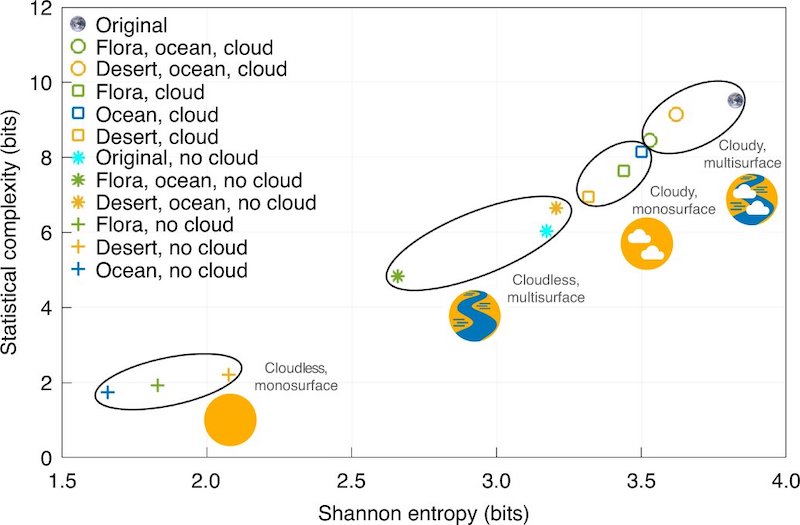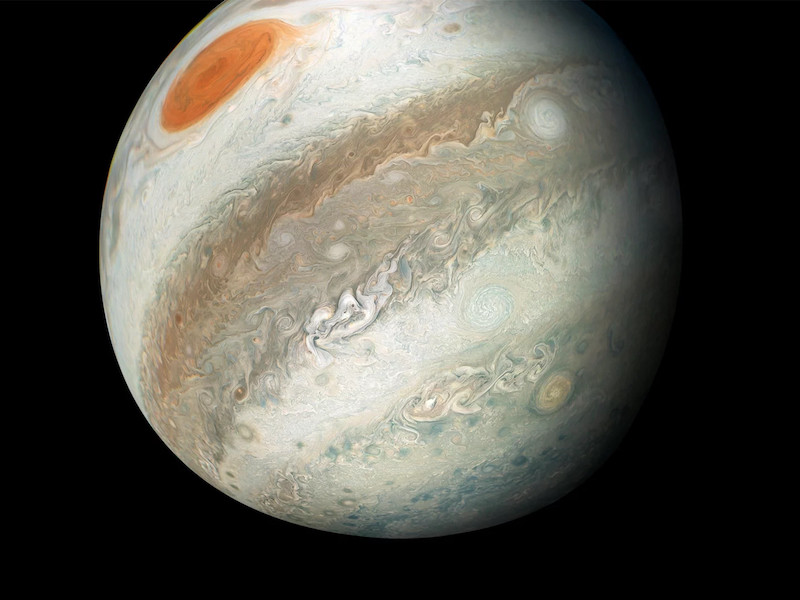
Researchers at Caltech in Pasadena, California, and at Sony Computer Science Laboratories in Tokyo explained this month (February 2022) how they’re working together on a new way to look for life on other worlds. They’re proposing epsilon machines (aka machine epsilon) to aid in the search. Despite the name, epsilon machines aren’t machines. Instead, they’re complex mathematical algorithms, sets of rules used when problem-solving with a computer. The researchers said in a paper published earlier this month that these sorts of algorithms could be used to identify complex features on exoplanets that are best explained – perhaps only explained – by life’s processes.
Stuart Bartlett at Caltech led the research, and the peer-reviewed journal Nature Astronomy published it on February 7, 2022.

What are epsilon machines?
Basically, scientists use epsilon machines to analyze complexity. And, as you might imagine, life itself is complex, especially as we might encounter it on some distant planet.
The search for life elsewhere derives, understandably, on what we know about life on Earth. So the search for alien life lends itself to preconceived ideas. We look for signs of earthlike life, when, for all we know, life on a distant exoplanet might be completely different from anything we’ve seen on Earth. It might look different. It might have evolved differently. It might be based on different molecules and processes. And so on.
So how do we look for alien life when we don’t know for sure what it looks like?
That’s where epsilon machines might come in. They analyze complexity. So they might be able to detect levels of complexity suggestive of life processes. On Earth, for example, epsilon machines have been used to study the complex movements (flocking) of birds.
And researchers have even used them to understand how individual brain cells might give rise to human consciousness.
Could they be used to analyze a distant planet, for signs of life? That’s what these scientists wanted to find out.
Analyzing complexity from afar
The scientists pointed to, for example, biosignatures as a way of detecting life on other worlds. You’ve probably heard discussions of biosignatures among scientists who hope to use the James Webb Space Telescope to search for them. Biosignatures are chemical compounds, isotopes, or other components of an exoplanet’s atmosphere that suggest life. For example, in Earth’s atmosphere, oxygen is a biosignature.
But what if we’re looking at a world that has life completely unlike that of our own Earth? Again, as the scientists said in their paper:
… it is increasingly recognized that extraterrestrial life could be very different from life on Earth.
Even so, these scientists said, there must be some commonality among worlds that have life. And they suggested two things we might have in common with those worlds. First, on any distant world with life, there would need to be some kind of biosphere, some realm on or in or above the planet where life dwells.
And there would be what these scientists called “observable planetary complexity.”
They then proposed to seek out that complexity, via analysis using epsilon-machines-type algorithms, to see if it could be done.

Earth is complex
How did they test their idea? The researchers used epsilon machines to study images of Earth from a distance. They found, perhaps unsurprisingly, that our home world is more complex than the other planets in our solar system. In fact, they said, Earth appeared in their study to be about 50% more complex than any of our sun’s other worlds. That level of complexity suggests that something other than ordinary geology or meteorology is going on here. Rather, most of the complexity can be explained by the presence of life.
Or consider Jupiter, another focus of the study, used as a comparison to Earth. As outlined in the paper:
A primary candidate for such a comparison is the gas giant Jupiter, generally assumed to be sterile …
And indeed Earth appeared much more complex than Jupiter, when analyzed by epsilon machine algorithms. The researchers said:
Despite the challenges of data acquisition and processing, [our analysis suggests] that Earth’s planetary complexity is higher than that of Jupiter … the present results are at least consistent with the hypothesis that planetary complexity correlates with the presence of life.
So it’s a novel approach! And an interesting one. It’ll be even more interesting if other scientists confirm this technique as a good one for searching for extraterrestrial life, and then set about using it. What will we find?

Bottom line: Researchers propose a new way of searching for extraterrestrial life on exoplanets using epsilon machines. The “machines” are actually arithmetic-based algorithms that can evaluate a planet’s overall complexity.
Source: Assessing planetary complexity and potential agnostic biosignatures using epsilon machines











